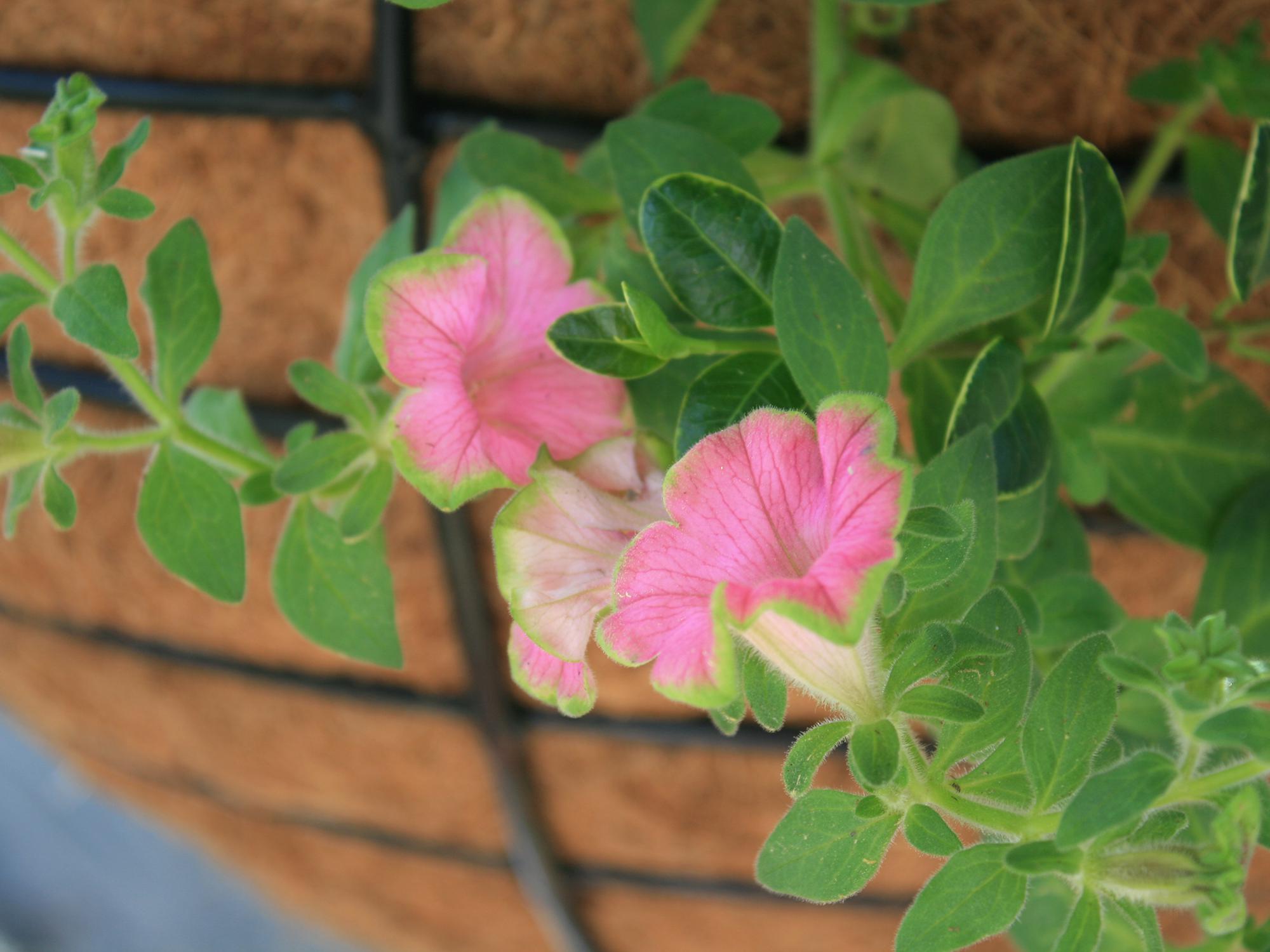Information Possibly Outdated
The information presented on this page was originally released on March 7, 2016. It may not be outdated, but please search our site for more current information. If you plan to quote or reference this information in a publication, please check with the Extension specialist or author before proceeding.
Use Picasso Supertunias in summer landscapes
As I walked around my landscape this weekend, I was really impressed with how my three winter staples -- pansies, violas and Telstar dianthuses -- are enjoying the lengthening days and a little bit of warmer weather.
As I walked around my landscape this weekend, I was really impressed with how my three winter staples -- pansies, violas and Telstar dianthuses -- are enjoying the lengthening days and a little bit of warmer weather.
They are blooming like crazy, almost in response to what I’ve been thinking: It’s time to start planning and planting the warm-season annuals.
These seasonal transition times are tough. My neighbors always ask, “Gary, why are you pulling those flowers out when they look so good?” It’s not because I’m mean or don’t like the flowers. I like to get most of the summer color in the ground early to allow the plants time to establish a good root system before temperatures get too high.
There are plants, such as annual vinca, that shouldn’t be planted until the season really warms up, so trust your nursery professional’s advice when plant shopping if you have any questions.
Getting back to my summer landscape color, if I could use only one plant type, I would choose the petunia, or more specifically, Supertunia. In my opinion, you can’t go wrong with these plants. Supertunias are big, bold, free-flowering and self-cleaning, so no deadheading is required. The selection of colors available allows you to work with any color scheme.
One of my favorites is the Mississippi Medallion winner Vista Bubblegum, with its clear-pink flowers and 3-foot or more spread.
But the Supertunia varieties I’m really impressed with are the Picassos. This may be because I like variegated foliage, and I’m impressed with two-tone flowers. They all have an outer edge of petals ringed in green that tends to blend in with the foliage and allow the artistically painted flowers to stand out.
Pretty Much Picasso has grown well in my garden. It’s the flower color scheme that really impresses me. This plant has unique pink petals with a purplish throat. The flower edges are lime green and tend to blend into the foliage, making it difficult to see where the flower ends and the foliage begins. Newest additions have been Picasso in Pink (green and pink flowers) and Picasso in Blue (green and purplish-blue flowers).
The newest creation that will be available in 2016 is Picasso in Burgundy. I had the opportunity to trial these in my home garden last year, and they were truly outstanding.
Always plant in full sun for the best flowering and growth. Keep the soil or potting medium consistently moist. Letting the plants dry out and start to wilt will shut off the flowering for up to a few weeks. Proper watering is especially important when these flowers are grown in containers, as they dry out much faster than when planted in the ground.
Early morning watering helps keep the soil moist. During the hottest months, you may need to water containers and hanging baskets again in the afternoon. This is where having a drip irrigation system is very useful.
All Supertunias are heavy feeders, so apply a controlled-release fertilizer at planting. For the best growth and flower production, feed these plants on a regular basis. I prefer using a water-soluble fertilizer once a week when I water the plants.
These great plants are butterfly and hummingbird magnets, so be sure to plant some in your landscape and garden this and every year.





